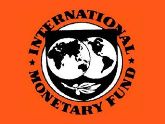IMF to assist Ukraine and Hungary - 16.5 billion dollars for Kiev
 Kiev/Budapest/Washington - Ukrainians expressed optimism, but still faced a shaky economy after the International Monetary Fund (IMF) said it will provide financial support to the hard-pressed country.
Kiev/Budapest/Washington - Ukrainians expressed optimism, but still faced a shaky economy after the International Monetary Fund (IMF) said it will provide financial support to the hard-pressed country.
The IMF on Sunday simultaneously announced a 16.5-billion-dollar credit for Ukraine. Additionally, it said it plans to give Hungary, which is also facing economic problems, a credit of an as-yet- undetermined size.
The fund, sometimes called "the last source of credit for debtor nations," earlier this month advanced Iceland two billion dollars to stave off a bank industry collapse.
"The West is helping us!" reported Ukraine's independent Channel 5 television news channel on Monday, in a typical reaction to the news. "But our problems are far from over."
Ukraine's stock market on Monday continued to lose ground and was down some 4 per cent on the day of hectic trading. The nation's largest PFTS exchange has lost over 40 per cent of its value since mid-September.
Ukraine's national currency, the hryvna, also was unaffected by news of IMF assistance, losing ground overnight from a Sunday exchange rate of 5.9 hryvnas to the US dollar, to 6.2 hryvnas or worse on Monday.
The National Bank of Ukraine (NBU) has spent 8 billion dollars over the last 30 days, more than ten per cent per cent of all its foreign cash reserves, in a so-far unsuccessful month-long effort to prop up the national currency.
Petro Poroshenko, NBU management board chairman, in Monday comments said the IMF cash promise should eventually stabilize money markets, and that the NBU was committed to maintaining the hyrvna as a stable currency.
"We will not allow a collapse," Poroshenko said, according to an Interfax news agency report. "We have sufficient reserves."
Ukraine's parliament on Monday failed, as it had every workday last week, to pass anti-crisis legislation needed to rebalance the state budget and to attempt a jump start of the economy, which has been hit badly by falling international demand for the key Ukrainian exports of steel, chemicals, and agricultural products.
Parliamentarians from both sides of the aisle have been blocking economic legislation from coming to the floor in delaying tactics. Ukraine's major political parties are at odds and unwilling to cooperate over the timing and legality of an upcoming parliamentary election, making assembly of a majority to support the anti-crisis legislation impossible to date.
"I hope legislators will show wisdom and support the nation," said Prime Minister Yulia Tymoshenko, in a statement. "Today all should be united to help Ukraine make its way past this extremely difficult stage of the global financial Armageddon."
Tymoshenko's comments made no reference to MPs in her own party who have repeatedly kept parliament from considering any new laws by physically surrounding the parliament speaker's lecturn and using threats and force to prevent legislation reaching the floor.
Details were sketchier on the assistance to Budapest, with the IMF announcing its intention to provide Hungary a "substantial financial packet," according to a statement by IMF chief Dominique Strauss- Kahn. Terms of the loan package will be finalized in the coming days, Strauss-Kahn said.
Hungary, like Ukraine, has been particularly threatened by the international financial crisis due failed market reforms and a large amount of foreign bond issues coming due. (dpa)